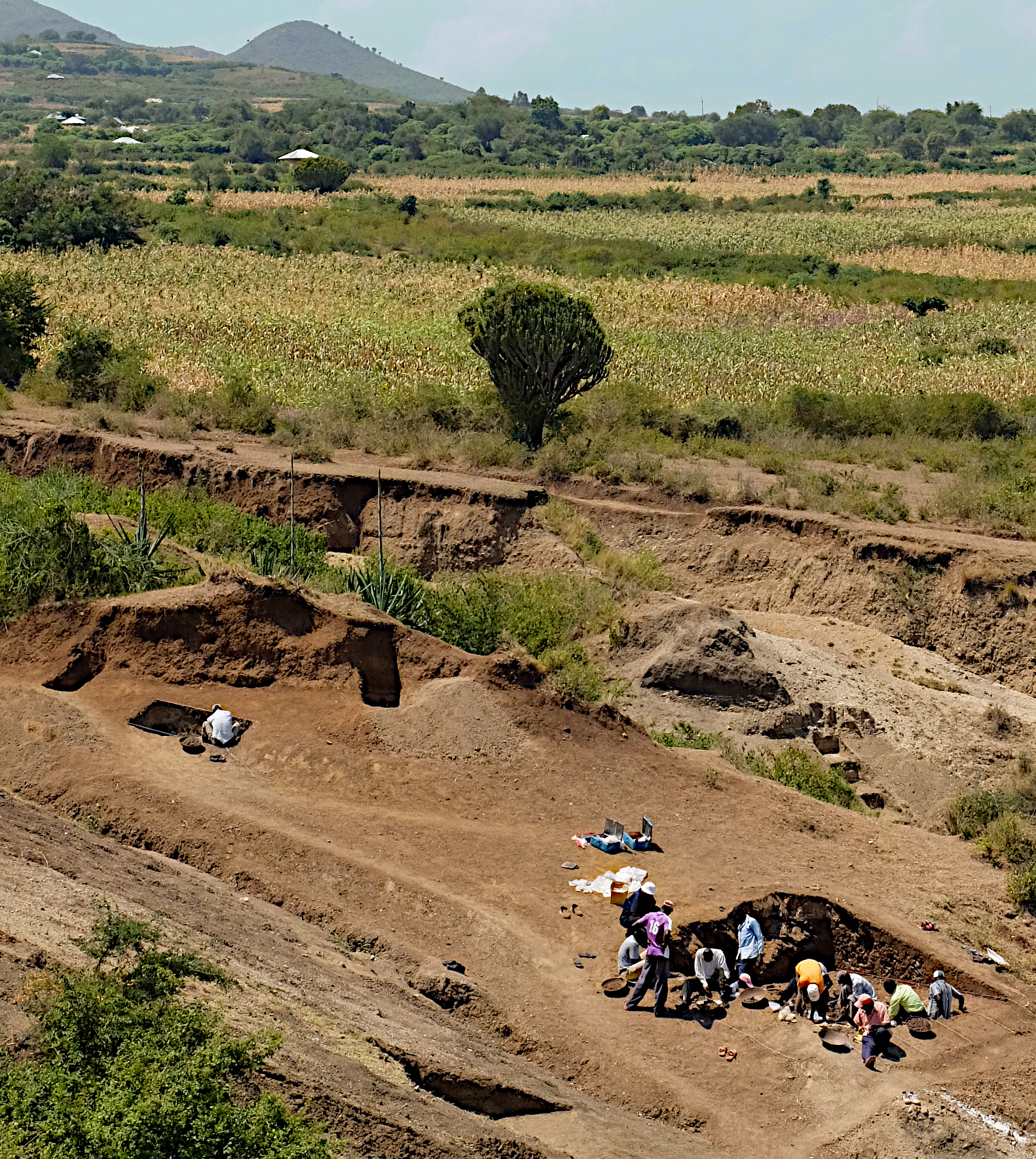Anthropology
Related: About this forumA 3 Million-Year-Old Discovery May Rewrite the History of Intelligent Life on Earth
A set of ancient stone tools may have been made by a species unrelated to modern humans, a new finding suggests.
By Hannah Docter-Loeb
March 9, 2023, 8:00am

IMAGE: CREDIT: J.S. OLIVER, HOMA PENINSULA PALEOANTHROPOLOGY PROJECT
For years, researchers have believed that human ancestors in Ethiopia were the first beings to use crude stone tools, about 2.6 million years ago. But a recently-published study introduces new findings that suggest tool-making occurred over 300,000 years prior, in a completely different location, and by a species that isn't even an ancestor to modern humans.
So-called Oldowan tool-making is often portrayed as something of a landmark in history, allowing for efficient processing of food. The advent of these advanced (at the time) tools is widely seen as a milestone in the development of culture, and has remained a touchstone in scientists’ investigations into the timeline of the emergence of human intelligence.
The paper in Science—which was co-authored by researchers spanning various institutions—describes a site in Nyayanga, Kenya that dates to 3.032 to 2.581 million years ago. Archeologists have been excavating the site since 2015 and discovered 330 artifacts (including tools), 1776 bones, and two hominin molars—but not belonging to any direct human ancestors.
“With these tools you can crush better than an elephant’s molar can and cut better than a lion’s canine can,” Rick Potts, senior author of the study and the National Museum of Natural History’s Peter Buck Chair of Human Origins said in a press release. “Oldowan technology was like suddenly evolving a brand-new set of teeth outside your body, and it opened up a new variety of foods on the African savannah to our ancestors.”
More:
https://www.vice.com/en/article/88x4vv/oldest-oldowan-tools-intelligent-life
calimary
(88,705 posts)Makes ya wonder what else might still be waiting to be discovered…
![]()
Chainfire
(17,757 posts)Scientist keep pushing the dates for the "toolmakers." I wonder how far it has been pushed back just in my lifetime.
Joinfortmill
(19,751 posts)burrowowl
(18,490 posts)Many what we call animals make tools. We call ourselves Homo sapiens sapiens, but I don’t think we are that wise. Thanks for link.
C Moon
(13,386 posts)grantcart
(53,061 posts)SunSeeker
(57,391 posts)But sea otters have only been around for about 2 million years, so the Oldowan predate them.
Warpy
(114,321 posts)After all, chimps and bonobos, from whom we split off 6 million years ago, have been observed using sticks and stones to catch and prepare their foods. Some birds use tools. Critters are a lot smarter than we've given them credit for and I'm sure that if we didn't figger it out on out own, we learned from them.
Sadly, the Orrorin tugenensis fossil they've found and managed to date didn't have anything with him/her that survived for 5.8-6.2 million years, so we don't know what they were capable of. It seems to me they might have been capable of banging two rocks together to crack nuts, at least.
PufPuf23
(9,675 posts)Stones and grit that are swallowed by birds collect in the gizzard and are known as gastroliths. The gizzard is where any undigested food that has not been fully broken down by the stomach and gastric juices ends up, and is pulverized there by the friction action of the swallowed stones, or gastroliths. Gastrolith
quoted from internet
If birds are dinosaurs, then maybe there were humanoid reptilians that haunt us to present. Not serious about this.
Warpy
(114,321 posts)I don't know if the stones in their gizzards are tools or just naturally picked up with their food along with smaller bits of sand that would just pass on through. I do know that quite a few species have been spotted using twigs to harvest insects. Australian magpies and worldwide corvids (crows and ravens) have shows a great deal of problem solving ability. Raptors in Australia hhave been spotted dropping burning twigs during wildfires to burn small areas and drive their prey out into the open. I have to wonder if some do it here, also.